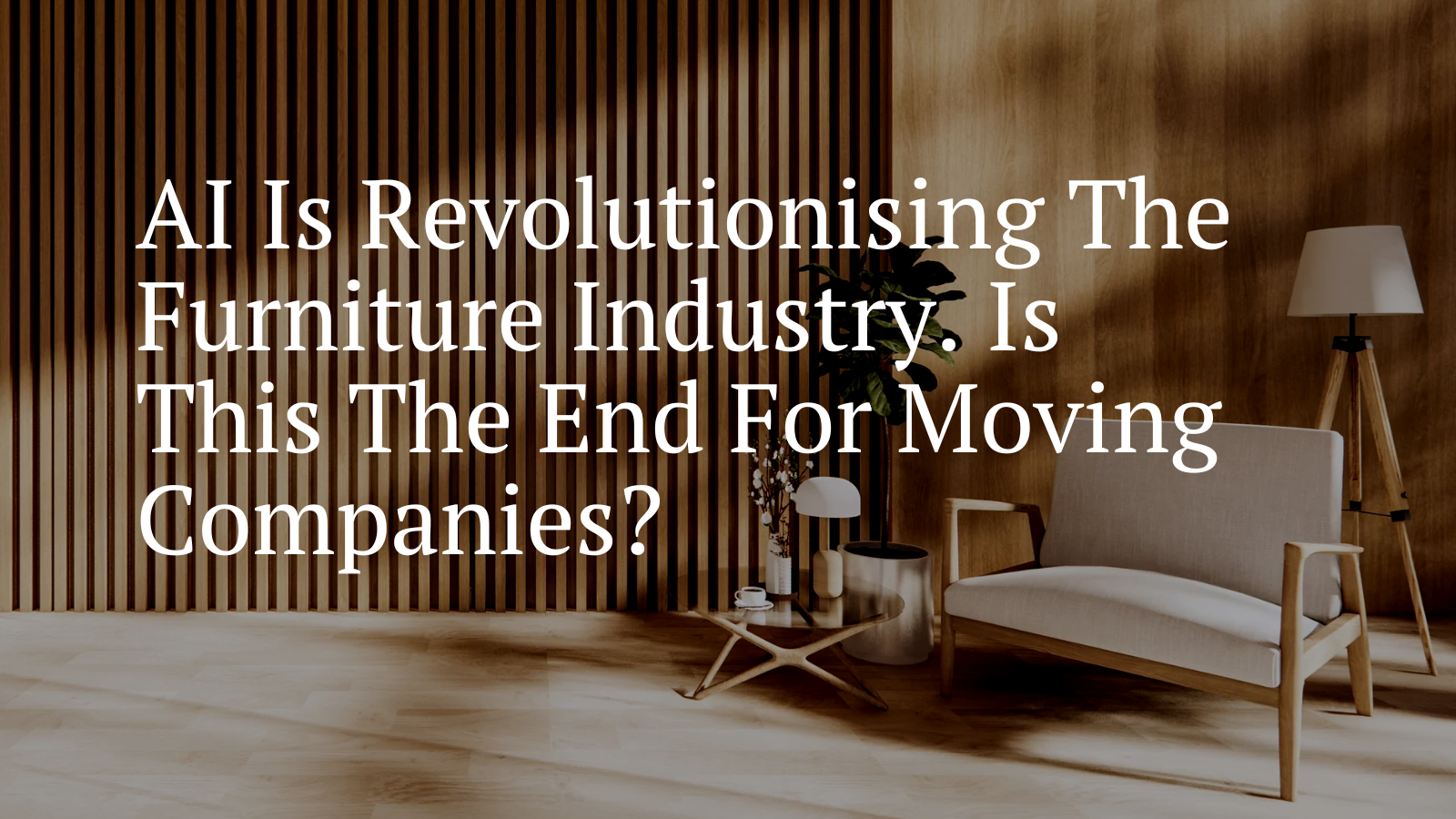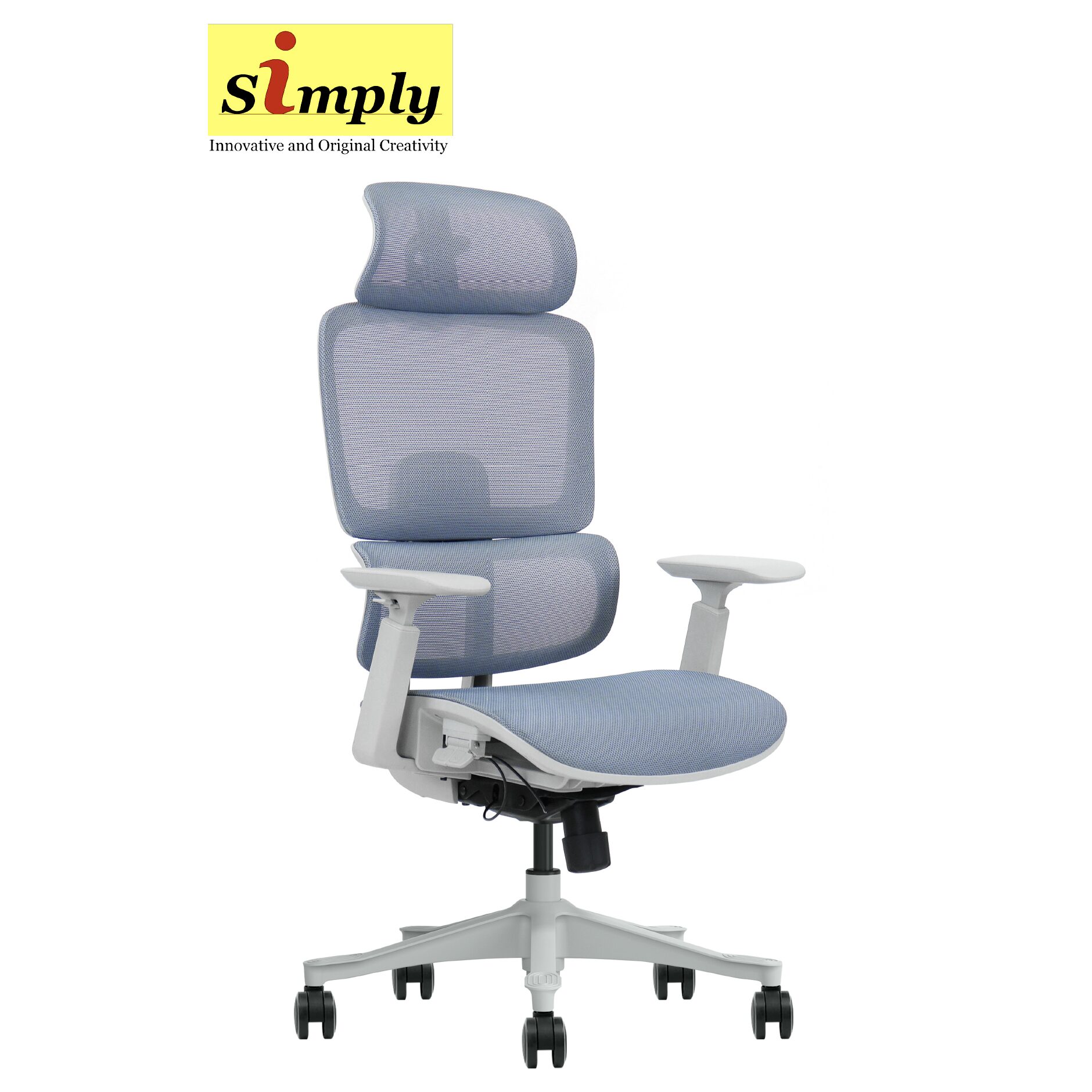- Login
- Sign Up


The furniture industry has witnessed significant transformations in recent years, driven primarily by advancements in artificial intelligence (AI) and technology.
This revolution is not only changing the way furniture is designed, manufactured, and sold but it also eases the hassle of moving furniture from one place to another
However, this also raises the issue of disrupting businesses of moving companies that have relied on the industry for decades.
So is this the end of moving companies or is there a silver lining when it comes to the automation of the furniture industry?
With the rise of e-commerce, online furniture shopping has become increasingly popular. AI-powered retail platforms are now enabling customers to virtually design and customize furniture, making the shopping experience more immersive and personalized.
This shift towards online shopping has led to a surge in demand for AI-driven logistics and delivery services, which are gradually reducing the need for traditional moving companies.
As a result, innovative partnerships like the one between UBTech and Easyhome are emerging. UBTech, a leading robotics company, has partnered with Easyhome, one of China’s largest furniture retail chains, to bring 10,000 humanoid robots to customers’ homes.
These robots will not only enhance the customer shopping experience but also provide intelligent elderly care services, such as delivery and companion robots, walking aids, and armchairs.
Source: Pexels
The collaboration between UBTech and Easyhome is a testament to the growing demand for humanoid robots in the furniture industry.
According to China’s statistics bureau, the country produced 1.5 million service robots from January to February, marking a nearly 36% increase from the previous year. The household sector, in particular, has the largest potential for the application of humanoid robots, which are expected to become an integral part of family life.
In addition to enhancing the shopping experience, humanoid robots will also play a crucial role in home remodelling and renovation.
Collaboration between UBTech and Easyhome involves the joint development of “renovation robots” that can reduce costs and improve efficiency during home remodelling, making it cost-effective.
The increasing use of AI and robots in the furniture industry will undoubtedly have a significant impact on moving companies.
As customers increasingly opt for AI-driven logistics and delivery services, traditional moving companies will need to adapt to this shift.
This could involve investing in AI-powered logistics systems, partnering with robotics companies, or diversifying their services to remain competitive.
Despite this, the role of moving companies will evolve from simply transporting furniture to providing value-added services such as assembly, installation, and maintenance, requiring moving companies to invest in training their workforce to work alongside AI and robots.
Source: Pexels
The integration of AI and robots in the furniture industry will also have a significant impact on the design and manufacturing process.
AI-powered design tools will enable designers to create complex and customized designs more efficiently, while robots will automate the manufacturing process, reducing errors and increasing productivity.
This could lead to a reduction in production costs, making high-quality furniture more accessible to a wider audience.
Furthermore, the use of AI and robots in manufacturing will enable real-time quality control, reducing the need for human intervention and minimizing the risk of defects.
AI will also play a crucial role in supply chain management for the furniture industry. By analyzing data and predicting demand, AI-powered systems can optimize inventory management, reducing stockouts and overstocking.
This will enable furniture retailers to respond quickly to changes in demand, reducing lead times and improving customer satisfaction.
Additionally, AI-powered logistics systems will enable real-time tracking and monitoring of shipments, reducing the risk of loss or damage during transit. This will result in increased efficiency, reduced costs, and improved customer satisfaction.
While the integration of AI and robots in the furniture industry presents numerous opportunities, it also poses several challenges.
One of the primary concerns is the potential job displacement of workers in the industry, particularly in manufacturing and logistics. To mitigate this, it is essential to invest in training and upskilling programs that enable workers to work alongside AI and robots.
Another challenge is the need for standardization and regulation of AI and robotics in the industry. As the use of AI and robots becomes more widespread, it is essential to establish clear guidelines and standards for their development, deployment, and maintenance.
Source: Pexels
The furniture industry is on the cusp of a revolution, driven by advancements in AI and technology.
While this shift presents several challenges, it also offers numerous opportunities for innovation, efficiency, and growth.
As AI and robots become more integrated into the industry, we can expect to see significant changes in the way furniture is designed, manufactured, sold, and delivered.
In the end, it’s not necessarily the end for moving companies, but rather a call to adapt and evolve in response to the changing landscape of the furniture industry.
Related To Furniture:
7 Best Cheap & Stylish Furniture Rental Shops In Boston
Top 6 Best Affordable Furniture Rental Spots In NYC




Copyright © 2018 Simply Office Furniture (Singapore). All Rights Reserved

Transform Your Workspace with Our Premium Office Furniture – Where Comfort Meets Productivity.

Simply Office Furniture
Store Manager
Simply Office Furniture
Hey, how can I help you today?